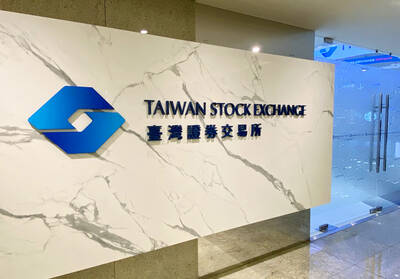The US Federal Communications Commission on Thursday voted unanimously to advance a plan to ban approvals for equipment in US telecommunications networks from Chinese companies deemed to be national security threats, such as Huawei Technologie Inc (華為) and ZTE Inc (中興).
The vote drew opposition from Beijing.
Under proposed rules that won initial approval, the FCC could also revoke prior equipment authorizations issued to Chinese companies.
A Huawei spokesperson in an e-mail called the FCC revision “misguided and unnecessarily punitive.”
Acting FCC Chairwoman Jessica Rosenworcel said that the new measures would “exclude untrustworthy equipment from our communications networks... We have left open opportunities for [Huawei and other Chinese equipment] use in the United States through our equipment authorization process. So here we propose to close that door.”
FCC Commissioner Brendan Carr said that the commission has approved more than 3,000 applications from Huawei since 2018.
The FCC action would prohibit all future authorizations for communications equipment deemed to pose an unacceptable risk to national security.
“The United States, without any evidence, still abuses national security and state power to suppress Chinese companies,” Chinese Ministry of Foreign Affairs spokesman Zhao Lijian (趙立堅) said.
“Once again we urge the US to stop stretching the concept of national security and stop politicizing economic issues,” Zhao said at a regular media briefing in Beijing.
In March, the FCC designated five Chinese companies as posing a threat to national security under a 2019 law aimed at protecting US communications networks.
A group of lawmakers, including US senators Ed Markey and Marco Rubio, praised the FCC action, saying it mirrors the goals of bipartisan legislation.
They said that the FCC voted “to put national security first by keeping compromised Chinese equipment out of US telecommunications networks.”
The affected companies included the previously designated Huawei and ZTE, as well as Hytera Communications Corp (海能達通訊), Hangzhou Hikvision Digital Technology Co (海康威視數字技術) and Zhejiang Dahua Technology Co (浙江大華技術).
Huawei said that “blocking the purchase of equipment, based on a ‘predictive judgement,’ related to country of origin or brand is without merit, discriminatory and will do nothing to protect the integrity of US communications networks or supply chains.”
In August last year, the US government barred federal agencies from buying goods or services from any of the five Chinese companies.
In 2019, the US placed Huawei, Hikvision and other firms on its economic blacklist.
Last year, the FCC designated Huawei and ZTE as national security threats to communications networks — a declaration that barred US firms from tapping an US$8.3 billion government fund to purchase equipment from the companies.
The FCC in December last year finalized rules requiring carriers with ZTE or Huawei equipment to “rip and replace” that equipment.
It proposed a reimbursement program for that effort and US lawmakers that month approved US$1.9 billion to fund it.
Rosenworcel said that the FCC is to vote next month to finalize the rules overseeing the reimbursement fund.

Taiwan Semiconductor Manufacturing Co (TSMC, 台積電) secured a record 70.2 percent share of the global foundry business in the second quarter, up from 67.6 percent the previous quarter, and continued widening its lead over second-placed Samsung Electronics Co, TrendForce Corp (集邦科技) said on Monday. TSMC posted US$30.24 billion in sales in the April-to-June period, up 18.5 percent from the previous quarter, driven by major smartphone customers entering their ramp-up cycle and robust demand for artificial intelligence chips, laptops and PCs, which boosted wafer shipments and average selling prices, TrendForce said in a report. Samsung’s sales also grew in the second quarter, up

LIMITED IMPACT: Investor confidence was likely sustained by its relatively small exposure to the Chinese market, as only less advanced chips are made in Nanjing Taiwan Semiconductor Manufacturing Co (TSMC, 台積電) saw its stock price close steady yesterday in a sign that the loss of the validated end user (VEU) status for its Nanjing, China, fab should have a mild impact on the world’s biggest contract chipmaker financially and technologically. Media reports about the waiver loss sent TSMC down 1.29 percent during the early trading session yesterday, but the stock soon regained strength and ended at NT$1,160, unchanged from Tuesday. Investors’ confidence in TSMC was likely built on its relatively small exposure to the Chinese market, as Chinese customers contributed about 9 percent to TSMC’s revenue last

Taiwan and Japan will kick off a series of cross border listings of exchange-traded funds (ETFs) this month, a milestone for the internationalization of the local ETF market, the Taiwan Stock Exchange (TWSE) said Wednesday. In a statement, the TWSE said the cross border ETF listings between Taiwan and Japan are expected to boost the local capital market’s visibility internationally and serve as a key for Taiwan becoming an asset management hub in the region. An ETF, a pooled investment security that is traded like an individual stock, can be tracked from the price of a single stock to a large and

Despite global geopolitical uncertainties and macroeconomic volatility, DBS Bank Taiwan (星展台灣) yesterday reported that its first-half revenue rose 10 percent year-on-year to a record NT$16.5 billion (US$537.8 million), while net profit surged 65 percent to an unprecedented NT$4.4 billion. The nation’s largest foreign bank made the announcement on the second anniversary of its integration with Citibank Taiwan Ltd’s (花旗台灣) consumer banking business. “Taiwan is a key market for DBS. Over the years, we have consistently demonstrated our commitment to deepening our presence in Taiwan, not only via continued investment to support franchise growth, but also through a series of bolt-on acquisitions,” DBS